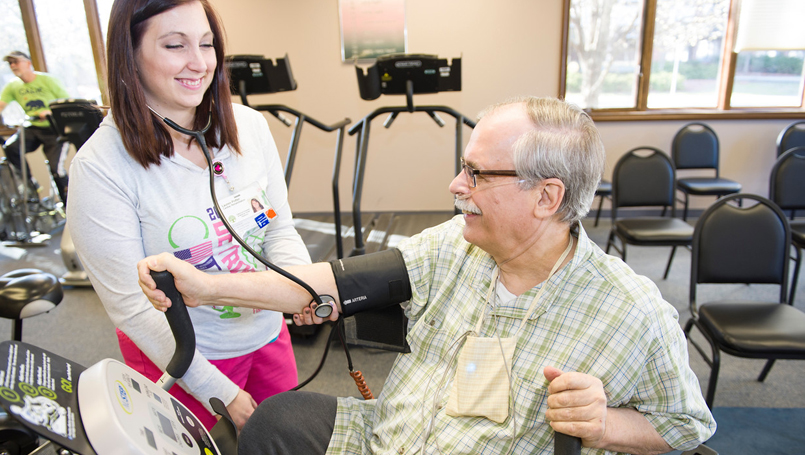Monday, May 09, 2016

Gregory Goleniak, 69, of Dearborn, has a family history of heart disease, but he didn't think it would impact him. He didn't consider his 50 years of tobacco use and poor nutrition. Routine activities such as walking and other physical exercise became much more difficult, resulting in practically no exercise at all for many years.
Because of his major health concerns, including high blood pressure, limited mobility and oxygen therapy to help manage chronic obstructive pulmonary disease, or COPD, Goleniak consulted Beaumont Hospital, Dearborn cardiovascular surgeon Reza Dabir, M.D., hoping to improve his quality of life.
Dr. Dabir identified Goleniak as a candidate for a new heart valve replacement device recently approved by the Food and Drug Administration called the Perceval valve.
"When the doctor told me this procedure would reduce the amount of risk and explained that it’s been used in other parts of the world for many years, that gave me confidence and I felt much more comfortable about my decision," said Goleniak.
One week after becoming the first Michigan resident to undergo a Perceval heart valve replacement, Goleniak was back at home.
Five weeks after the procedure, he attended cardiac rehabilitation for the first time. “My goal now is to build my endurance, so I don’t have to wear oxygen anymore,” said Goleniak.
The Perceval valve has been used in Europe since 2009 and has been proven to reduce surgery time and risks for patients while promoting a speedier recovery.
The valve is made from the pericardium of a healthy cow’s heart affixed to a metal cage made of nitinol, which is a combination of nickel and titanium. Once the diseased valve has been surgically removed, the new one can be inserted through a device. The nitinol cage, compressed when the valve is inserted, naturally expands to conform to the size of the aorta, which keeps the new valve in place.
"This new valve allows us to treat patients more effectively and get them back to their regular lives quicker than ever before," said Dr. Dabir. "We are among the first hospitals in the country to be able to provide this to our patients."
Traditionally, when a new valve is implanted, the surgeon must suture it in place. The Perceval valve requires no suturing and this significantly reduces the time of the operation – meaning less stress on the patient’s body. Patients require less time under anesthesia, less time on the heart-lung machine and generally recover faster. The FDA approved the device for use in the U.S. following a clinical trial of 300 cases.
Dr. Dabir was one of only 25 surgeons across the country selected to take part in the clinical trial, and was the first to perform the procedure in Michigan. He said it will help patients and surgeons alike.
"All of the data that we've seen to date has shown excellent results," said Dabir. "This is an advantage for patients. From my perspective, it's not about being the first, but about providing access to another treatment that will greatly benefit our patients.
Beaumont offers a wide range of heart valve replacement options at its Dearborn, Royal Oak and Troy hospitals. These options include traditional valve replacement surgery; minimally invasive valve replacement surgery through small incisions; and transcatheter aortic valve replacement, where a valve is replaced through a catheter without open-heart surgery for high- risk patients.
